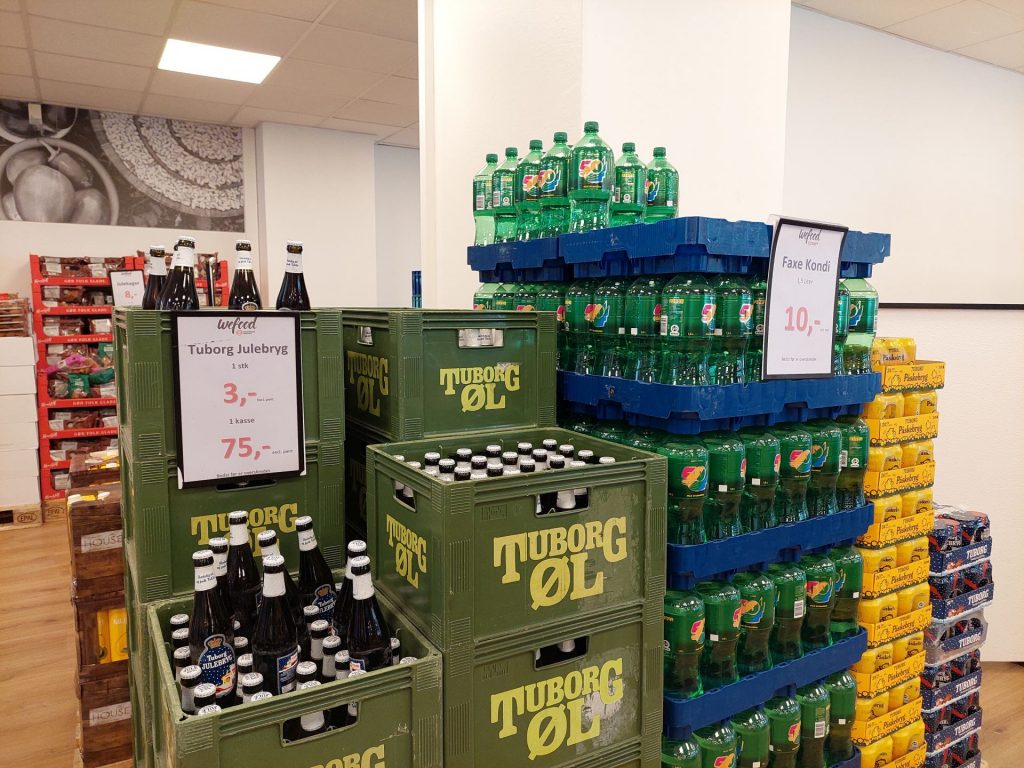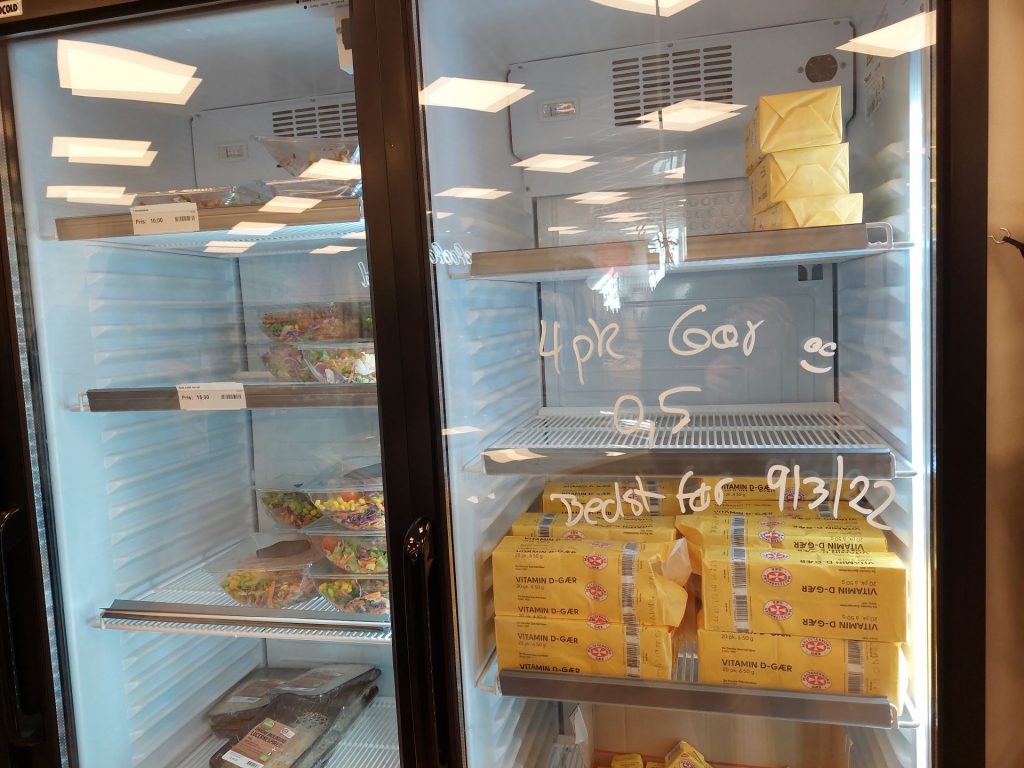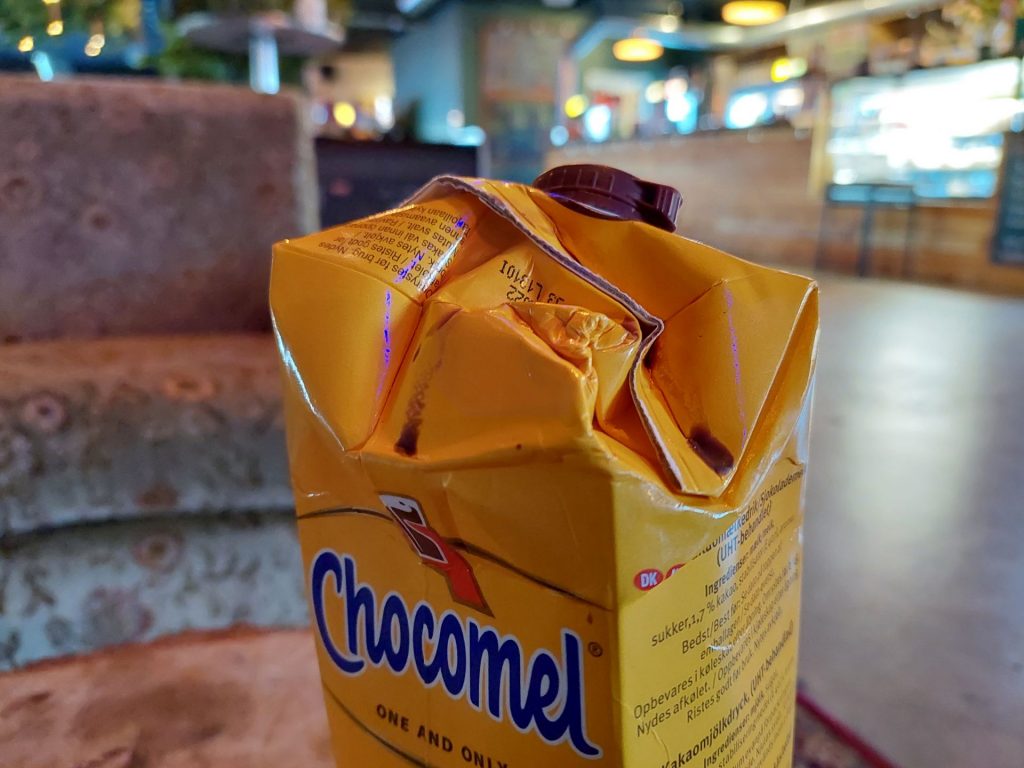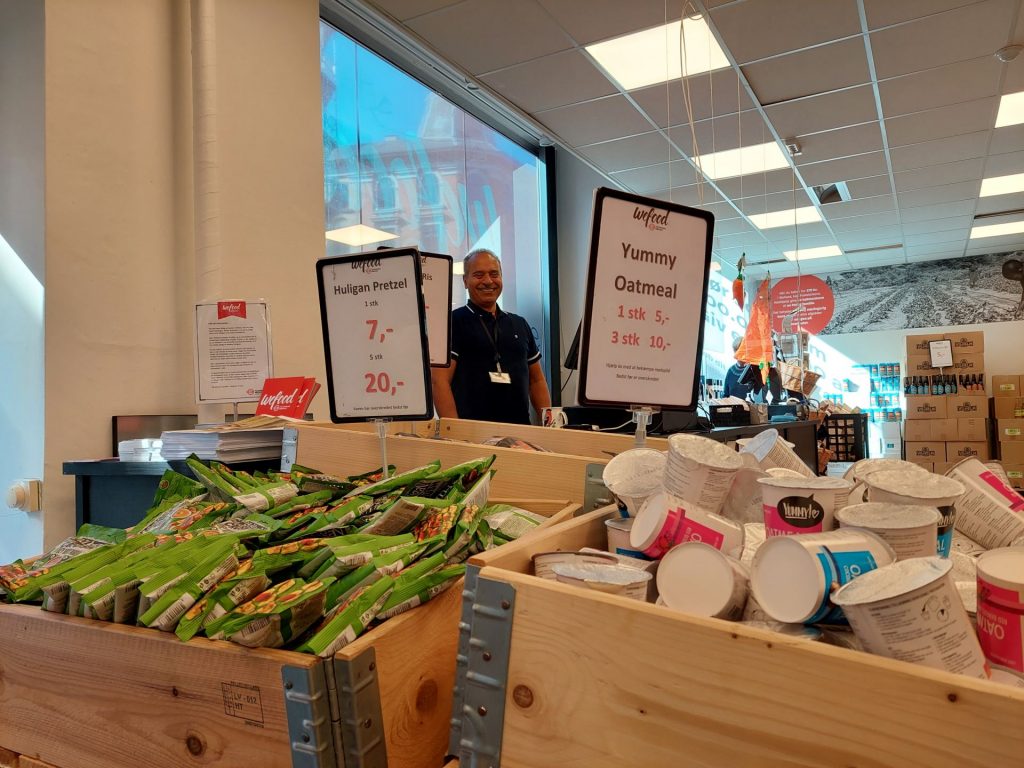They sell what others throw away: Wefood-Stores in Denmark have committed themselves to only offering expired or surplus food – thanks to a special Danish law.
by Maren Krämer and Stanislav Hodina
Bread, coffee and salads: At first glance, the goods at the Wefood supermarket in Nørrebro seem to be the same as everywhere else. But they aren’t. Most of the items are cheaper than usual. Some have already reached their expiration date, others look quite battered with compressed packaging or destructed labels. None of these products could have been sold in a regular supermarket.

This Easter beer expired last year, but according to a Wefood volunteer “only gets better over time”. 
The range of products changes every day. Sometimes, there is an abundance of yeast. 
This chocolate drink will expire in August 2022, but due to the damaged packaging can not be sold anywhere else. 
Volunteer Ali also sells snacks like pretzels or oatmeal.
Six years ago, the first surplus food supermarket opened in Amager, Copenhagen. With additional two stores in the capital and another three in Aalborg, Aarhus and Vejle, Wefood tries to fight food waste all over Denmark. The products are donated by all kinds of shops that can not sell them anymore.
Managed by the Folkekirkens Nødhjælp (Danish People’s Church Emergency Aid), Wefood donates its profit to climate work and development projects in countries such as Cambodia, Ethiopia and Zimbabwe and other people in need. “Right now, of course, it’s Ukraine”, says Emil Minana, volunteer at the Wefood Nørrebro.
Good for the environment, good for your budget
In Emil’s experience, customers shop at Wefood for different reasons: “Here in Nørrebro, we have a lot of people coming where the food waste is the important part for them. In some of the other stores, it’s more important that things are cheap.” A lot of customers also like to support charitable functions.
Rose Nikoline Reunert stops at Wefood every once in a while: “It’s really genius to have a shop that sells things that would otherwise be thrown out. A lot of people are really afraid of eating expired food, some people even throw out food before it has gone bad.” The quality of the products is regularly tested. “We make sure that we as volunteers would like to eat it ourselves”, explains Emil.
According to Folkekirkens Nødhjælp, a third of food produced worldwide ends up in the trash. They claim that in Denmark, the average family throws away 20 percent of its groceries. Approximately 716,000 tonnes of food are tossed out in Denmark every year – the majority of which are fruits and vegetables. At Wefood, Emil observes an increasing awareness for food waste with more and more customers and even regulars.
Besides Wefood, initiatives like Foodsharing or The Free Fridge Copenhagen, national organizations like the Stop Wasting Food Movement and a large amount of local venues participating in the Too Good To Go app are indicators of growing interest for the issue in Copenhagen.
The municipality reports that avoidable household food waste has been reduced from 30350 tonnes in 2016 to 23977 tonnes in 2020. Policies like the Ressource and Waste Plan and the Food strategy plan are aimed at improving the situation, even more, states Stine Rendal Kristoffersen Knudsen from the Technical and Environmental Administration of Copenhagen.
Policy change allows reducing food waste
Projects like the Wefood markets are only possible since Denmark allowed the sale of expired goods in 2014. While customers have to be informed about the overdue expiration date, the law makes it easier for stores to reduce the amount of waste they produce on a daily basis.
The Danish government also issued reports on Consumer food waste in collaboration with the Centre for Food and Agriculture at Aarhus University in 2018 and 2021. The Veterinary and Food Administration is currently looking into how to use the findings from both reports in initiatives towards consumers, states Rikke Karlsson from the Ministry of Food, Agriculture and Fisheries.
Though Denmark seems to be a role model in the fight against food waste, there are still some factors that need to be considered. For one, the term Food Waste in Denmark only refers to avoidable food waste, and so do the numbers published by the municipality of Copenhagen. Internationally, food waste refers to both avoidable food waste and unavoidable food waste – comparing Denmark to other countries, therefore, is not as easy.
Additionally, food waste is not only produced in private households. In the municipality of Copenhagen, there are several departments for all types of waste, for example, the waste generated by meals served in city institutions. In the end, it’s hard to say which impact a project like Wefood actually has on the overall amount of food waste in Denmark.
This story is written for an environmentally aware audience in Urban German cities and could be published on https://www.zeit.de/zett/index